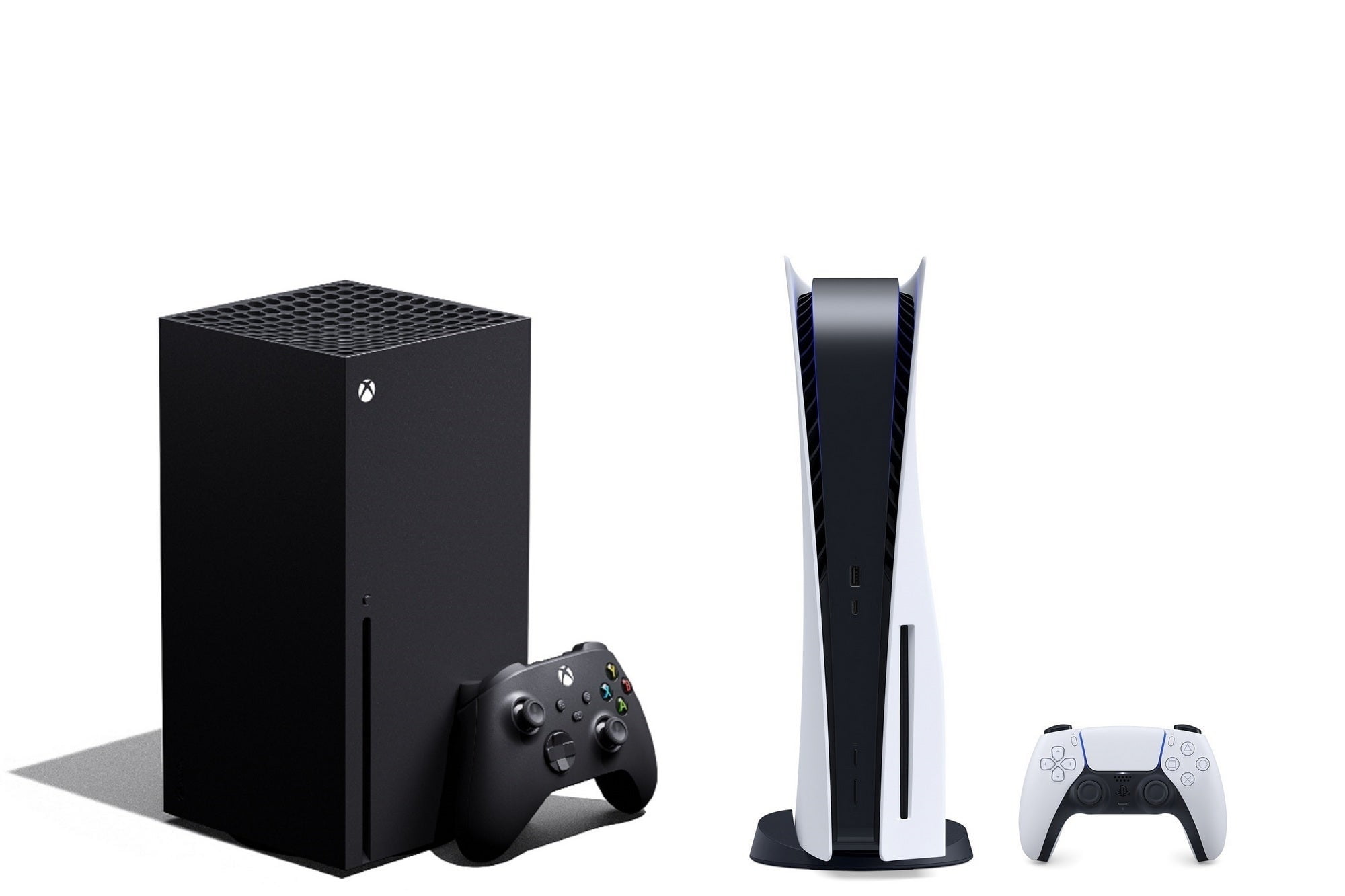
For people who don’t play video games, they can seem like a strange and vaguely threatening interloper into the household.
These noisy yet seemingly seductive things are on computers, on smartphones and tablets, and on expensive consoles that your kids will tell you everyone else has. And if you’re not buying them for your children, your children are probably playing them elsewhere.
Even if you never intend to play a game in your life, you should probably know about them – if only to understand what it is that drags other people in. Here’s everything you need to know and were to embarrassed to ask.
How does the games industry work?
There are three different sectors to the market:
Console games for dedicated machines like the PlayStation, Xbox and Wii (as well as handheld devices like the PlayStation Vita and Nintendo 3DS)
Computer games for the PC and Mac
Mobile games for smartphones and tablets
It used to be that all video games were sold on discs (or even further back, cartridges) and bought in high street stores. Here, Check out some online hidden super hit games in Arkadium. With the advent of broadband internet, however, many games are downloaded straight to the PC, console, tablet or smartphone.
Sometimes these games are free to download, but players may be asked to pay for extra content within a game – perhaps “power-ups” to help them when they’re stuck. These are called micro-transactions and are very common on smartphone and tablet games.
Who are the big companies?
Most boxed games are produced by large multinational publishing companies. The console manufacturers Microsoft, Sony and Nintendo, and the major “third-party” publishers, Activision Blizzard, Electronic Arts and Ubisoft, are the traditional giants of the industry.
These companies have their own in-house development teams designing games, but they also publish the games developed by smaller independent studios.
After these come several Japanese publishers – Sega, Square Enix, Konami and Capcom – which used to dominate the industry, but have struggled with the decline of amusement arcades.
In the era of digital distribution, more and more smaller companies are “self-publishing” which means they create the games, then sell them via online stores like Steam (on PC) or the Apple or Google App Stores. The UK has more than 500 development studios all over the country, many of them now self-publish in this way.
There are also many huge new publishing companies specialising in mobile games and massively multiplayer online games. King, for example, is the successful publisher of smartphone hit Candy Crush Saga and many other casual titles.
Meanwhile, the Chinese investment company Tencent is quickly becoming one of the biggest forces in gaming through its mobile and MMORPG (massively multiplayer online role-playing) titles. China is one of the key emerging forces in the global games industry. Here’s a list of the world’s top 25 video game companies by revenue.
It’s also worth noting that other big companies are very interested in games. Apple and Google run the app stores on their respective phones, while television manufacturers like Samsung are now including app stores on their internet-connected TVs. Furthermore, internet and television service providers like Sky and Virgin Media are keen to entice gamers who tend to pay for higher download and upload speeds.
Where are games made?
All over the world. The top five video game producing countries are the USA, Japan, Canada, the UK and China. UK does not have any major publishers anymore, but it does have some extremely successful developers. Most notable are Rockstar North in Edinburgh, which makes the Grand Theft Auto games; Traveller’s Tales in Knutsford, which makes the Lego titles like Lego Star Wars and Lego Batman; Lionhead in Guildford, which makes the Fable series; and Codemasters makers of the F1 and Grid racing games.
Scandinavia has also become a major game producing area, while India, Eastern Europe and South America have emerging game development industries.
How big is the games industry?
It’s huge. According to research company DFC Intelligence, the global games market, including console, PC and smartphone titles, hit revenues of $66bn in 2013, and this figure is expected to grow to $79bn in 2017.
By comparison, global box office revenues for the movie industry were at $35.9bn in 2013. The global music industry stood at $15bn in 2013 according to IFPI figures.
So the games industry is bigger than cinema and music put together.
When is it OK for children to start playing video games?
This is a controversial subject and academic researchers are only just starting to explore the effects of screened entertainment on very young children. However, the American Academy of Pediatrics (AAP) has consistently advised against any screen time, be it TV or tablets, for children under two.
Several studies published in the last decade has suggested that screen time before the age of two can affect language development. There have also been links to the later development of ADHD in children who were exposed to screened entertainment before the age of three.
In 2012, psychologist Dr Aric Sigman advised that children under the age of three should not be exposed to any form of screen entertainment. More research is needed, though.
Can games be educational to children over three?
After the age of three, there is evidence that educational tablet and smartphone games can help children with numeracy and literacy. In 2012, the Department of Education studied the use of the iPhone app, Martha Speaks Dog Party in schools. Children aged three to seven who used it every day for two weeks had widened their vocabulary by as much as 31%.
Numerous computer and tablet games are now regularly used in education. Sites like SumDog, BugClub and Mathletics are integrated into learning programmes, allowing teachers to monitor the reading and maths skills of students. The game give pupils points for successful tasks, incentivising development.
For older children, there are plenty of games with creative and educational value. The most obvious example is the building simulator Minecraft, which can teach players everything from architecture and physics to electronics and geology. A company named TeacherGaming has developed a special version named MinecraftEdu for use in the classroom, allowing teachers to set up and guide projects.
Titles like Civilization and Sim City teach strategic thinking as well as providing information on history, geography and urban planning. There are also excellent space sims like Kerbal Space Program and Orbiter that teach children about the basics of aeronautics.
There’s a wealth of evidence to suggest that games can help with hand-eye coordination, puzzle solving, logical thinking, spatial awareness, teamwork and a host of other vital, transferrable skills.
What about video game violence?
It is very important to realise that not all games are suitable for children. Indeed, many video games are designed for adult players only. Every game sold in stores is required by law to display an age rating on the box. In Europe, the certification body is called PEGI and in the US, it’s ESRB. As well as an age rating, game boxes must also show a series of icons informing customers about the sorts of content a game will contain – including violence, sex and drug use.
Dozens of studies have been carried out into the effects of game violence on teenagers, and many show a short-term spike in aggressive behaviour.
However, the methodology is often questioned and there is very little research into the long term influence of violent games on behaviour. Whatever the case, if a game is rated 18 or over, it should be treated like an 18 certificate movie – it is unsuitable for younger children.
Do games make children antisocial?
Again, there has been plenty of research into this question. In 2009, researchers at Brigham Young University, Utah, questioned 813 college students and found a link between video game play and poor relationships with family and friends. However, it may well have been that antisocial people were drawn to video games, rather than video games making them antisocial.
In 2012, researchers at Iowa State University found that “prosocial games” – titles that encouraged players to co-operate and help each other – increased helpful behaviour.
There are lots of games that people can play together in a co-operative rather than competitive way. Minecraft is a great example (and many of its fans also love the similar Terraria), as are the Lego titles.
Setting limits on play
The authors of the Iowa report had two key pieces of advice for parents worried about games. The first was to keep games machines such as computers and consoles in a communal area of the house so that play could easily be monitored.
The second was to set time limits on the amount of time children could play. Experts suggest that children should not be exposed to more than two hours screen time a day, whether that’s TV or gaming. If you can’t monitor your child’s use of games machines directly, you can use the parental controls on your tablet, smartphone, console or computer to restrict access. We’ll provide guides to these elements later in the week.
What are the most popular types of games?
Well, that depends on the “platform” or type of machine they’re being played on. In the smartphone sector, it’s casual puzzle games like Candy Crush Saga. However, in the console and PC space, it’s action adventure games like Grand Theft Auto, and “first-person shooters” like Call of Duty and Battlefield. However, sports games such as Fifa 2014 are also very popular, as are fitness and dancing games like Wii Fit and Just Dance.
On the PC, massively multiplayer games like World of Warcraft continue to be popular, as do strategy simulation games like Starcraft. One of the biggest genres in PC gaming right now is the Moba, or multiplayer battle arena. Titles like League of Legends and Dota 2 have vast fanbases.
The website Statista provides a handy chart of of popular genres, based on data from US gamers.
What are the big games right now?
For the last five years, the biggest brand in the gaming world has been Call of Duty, a range of first-person shooters from Activision; see our guide on that series.
Last year, however, Grand Theft Auto V, became one of the biggest entertainment releases of all time, making over $1bn in its first day on sale, and selling almost 30m copies within six weeks of its September 2013 launch.
Elsewhere, the Fifa football sims from Electronic Arts sell well whenever a new title is released (every autumn), and the Assassin’s Creed series of historical action adventures from Ubisoft has been very successful. In the family gaming area, Nintendo’s Pokemon and Animal Crossing titles continue to perform well.
Outside of mainstream gaming, the cult hit Minecraft now has 100m registered users and is available on almost every games-capable machine. There are also many globally successful online multiplayer games like World of Warcraft, and the free-to-play giants, Rift, Neverwinter and Tera Online.
This year, the top releases have been the Wii U racer Mario Kart 8, the dark fantasy adventure Dark Souls 2, the online shooter Titanfall and the smartphone games Hearthstone, Threes and Monument Valley. There have also been excellent “indie” games, designed by smaller studios: the adventure Kentucky Route Zero, the fantasy role-playing game Transistor and combat platformer Towerfall: Ascension have all been crossover hits.
What are some of the big discussion points in gaming?
The battle between the two new games consoles – the Sony PlayStation 4 and Microsoft Xbox One – is getting a lot of coverage. Both machines have fast, powerful multi-core processors and advanced online features, but so far Sony has won the hype war and its PS4 machine is selling better, shifting seven million units since the launch last November.
The rise of free-to-play games on smartphones has been controversial with many parents caught out by huge gaming bills as children download extra content, unaware that in-game micro-transactions are usually billed later.
In terms of technology, virtual reality is once again picking up interest. The forthcoming Oculus Rift headset for PC and the Sony Project Morpheus headset for PlayStation 4 both promise to immerse wearers in the action. Players view the world via screens placed close to their eyes, while their movements are transferred into the game by tracking sensors. We could start seeing these devices hit the shelves by Christmas 2014.
As for game genres, space games are having a surge in popularity thanks to forthcoming interstellar exploration titles No Man’s Sky, Star Citizen and Elite 4. We’re also seeing a lot of games that blend a single-player story with multiplayer features, so gamers can effectively drop in to the stories of other players. Dark Souls, Watch Dogs and the forthcoming space epic Destiny all support this feature.
The phenomenon of professional gaming – or “esports” is also gaining a lot of interest. Over 70m people worldwide regularly watched coverage of professional gaming tournaments last year. The biggest titles are League of Legends, Dota 2, Starcraft 2 and Call of Duty. Coverage is shown mostly online via live-streaming channels like Twitch.
How do my kids find out about games?
It certainly isn’t from television, and dedicated video game magazines are also on a sharp decline. For the last five years, major video game sites like GameSpot, IGN and Eurogamer have provided video game news, previews and reviews to many millions of gamers around the world. These are still the industry leaders in many respects.
However, more and more young gamers are turning to YouTube presenters like Syndicate and PewDiePie for their games coverage. Some of the most successful YouTube games ‘casters have many millions of subscribers, and regularly post videos of themselves playing the latest titles.
Could my child get a job in games?
Yes. The games business is a huge employer of graduates, and is one of the UK’s key creative industries. The government has just granted UK developers tax breaks in order to increase their attractiveness to foreign investors and publishers, and to support innovative development – this should provide a boost to development in the future.
The games industry needs maths, physics and computer science graduates as well as skilled animators and artists. The organisation Creative Skillset has advice and details on video games courses in higher education that are approved as fit for purpose.
However, hours tend to be long and pay is often lower than in other technical industries requiring the same skills. Computing graduates will earn more developing software in finance or for the military than they will making games.
However, the games industry is a creative industry, like film and TV, and carries a similar allure. Games are now recognised by Bafta which holds a video game awards ceremony every year. There is a skillset crossover between games and movies, with animators and artists usually able to move from one discipline to the other, though competition is fierce.
Should I play games with my kids?
Yes definitely. Sharing games with your children will allow you to keep an eye on what they’re playing, and it will give you a common interest to talk about. Games like Minecraft have a rich culture and complex ruleset and its easy to be left behind if you don’t understand what your children are enthusing about. Co-operative titles like The Lego action games also allow players to solve puzzles together.
Playing and sharing games also provides a safe, enjoyable space to discuss other things. If you’re finding it difficult talking to your child or teenager about their lives, a video game can provide a venue that fits their way of thinking better than the dinner table. Games should be considered a social space, not an antisocial waste of time.






